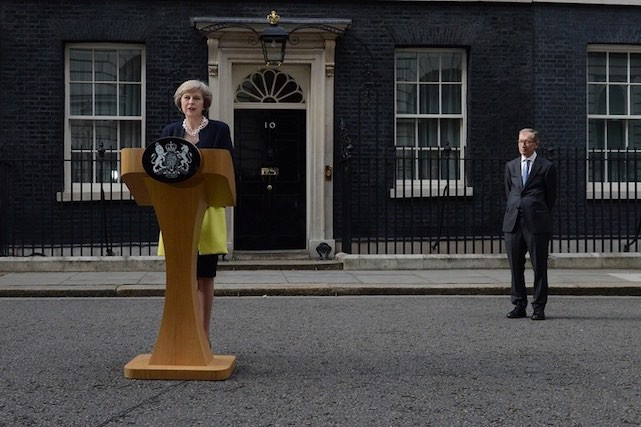An election is the only way to guarantee stability and certainty, May said on 18 April. She argued that the opposition she faced both in the House of Commons and in the Lords would tie her hands in the negotiations with the EU, and that she is not prepared to allow her opponents to jeopardise the Brexit negotiations.
She challenged the other parties to accept the early election (the Fixed-Term Parliaments act stipulates that parliament needs to vote on it with a two-thirds majority), and the Labour Party’s Jeremy Corbyn has agreed.
May had consistently ruled out a snap election since she became PM. However, with a parliamentary majority of only 17 and party discipline not as strong as in other European countries, May may have foreseen difficult negotiations ahead.
She got a taste of it during the drafting of the Article 50 bill, when both the House of Commons and the House of Lords initially demanded to have a vote on the final deal and the right to be informed about the state of negotiations. While she won those battles, it seems clear she does not favour active and engaged involvement and scrutiny of parliament in the Brexit negotiations.
Latest polls
In a Yougov poll from 12-13 April 2017, the Tories got 44% (+2%) of voting intentions, Labour 23% (-2%) and the Lib Dems 12% (+1%). UKIP scored 10% (-1%).
The opposition parties are in disarray. Labour’s leader Jeremy Corbyn is very contested among Labour supporters and is not seen as a potential competent PM--and on economic policy governance Labour is not seen as doing well either.
UKIP’s new leader is contested internally and currently the party struggles to remain relevant. The Lib Dems are the party which advocates for the UK staying in the EU single market, but its leader has been said to lack charisma; furthermore, the Lib Dems still suffer from the loss of credibility from the coalition government with the Tories.
Conversely, the Tories are riding high on their approval ratings. Hardline Tory Brexiters however keep pushing the PM for a hard Brexit. An election would strengthen her personal mandate for the Brexit she envisages, which she has been lacking so far.
Looking at the polls and the internal party struggles, Prof. Tim Bale from Queen Mary University had already argued in September 2016 that:
“She will engineer a contest in the spring or early summer of next year--before the economy begins palpably to slow down, before the continuing squeeze on the NHS makes waiting lists and times even longer--and before Labour can dump Jeremy Corbyn. And even if she waits until 2020, she’ll still win. But if she goes sooner, she stands a chance of achieving the sort of majority that the Conservatives have only been able to dream about for 30 years. Carpe diem!”
